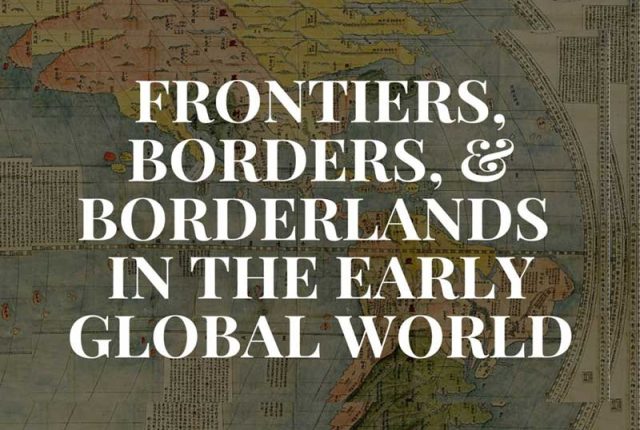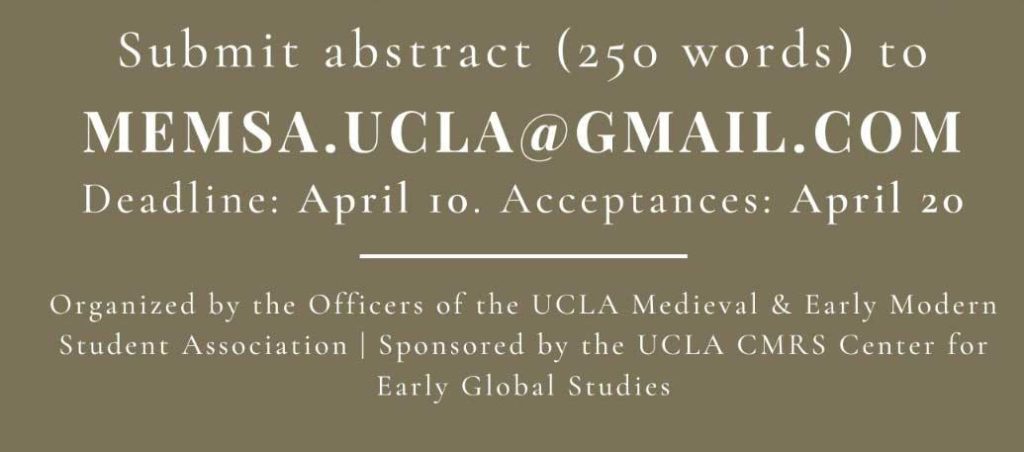
The officers of MEMSA are pleased to announce this year’s conference, “Frontiers, Borders, & Borderlands in the Early Global World.” The conference will be held in the Humanities Seminar Room, 306 Royce Hall, on June 2, 2023. It will be a hybrid event and possible to join in person or via zoom.
MEMSA invites submissions from graduate students in any discipline of medieval and early modern studies, at UCLA and beyond. Abstracts of 250 words are due April 10. Please email them to memsa.ucla@gmail.com. Acceptances will be sent by April 20.

As today’s world is rocked by current events in which nation-states are invaded, aid is blockaded at national borders, and marginalized groups fight for a political presence, we as medievalists and early modernists look back and ask: how did we get here? Although often compared to modern international borders, pre-modern frontiers, borders, and borderlands were arguably more unstable, messy, and ill-defined. In this conference, we therefore define these spaces in the broadest possible terms: as meeting points and spaces between geographical, social, cultural, religious, or political spheres. The ever-evolving shape and history of frontiers, borders, and borderlands in the early global world has continued to inspire study, and in this conference we seek papers from graduate students and emerging scholars that engage with the varied, and often unexpected, productions of and responses to these liminal, contested spaces.
MEMSA invites submissions from all fields of medieval and early modern studies—including but not limited to history, gender and sexuality studies, history of art and architecture, philosophy, and literature—that engage with frontiers, borders, and borderlands and the conditions that arose from their unique positionality. Possible topics might include architectural comparisons of borderland fortifications, the cultural permeability of portable objects, legal responses in conquered lands, or how ideas of race and gender changed in plural societies. Proposals from emerging scholars studying frontiers, borders, and borderlands outside of Europe are encouraged.
Organized by the Officers of MEMSA: Patrick Morgan, Hannah Maryan Thomson, and Chase Caldwell Smith. Sponsored by the CMRS Center for Early Global Studies.


